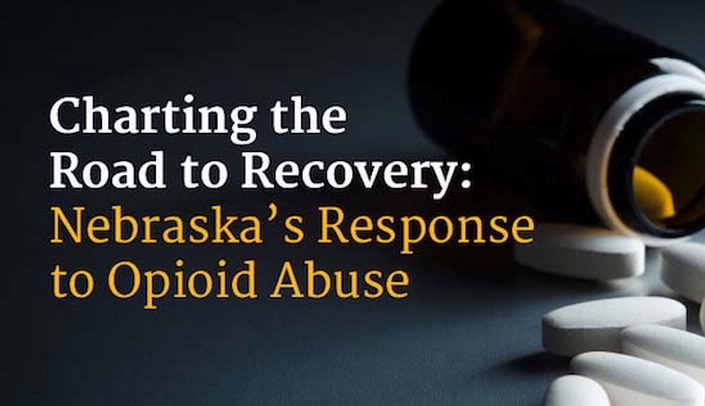OMAHA — More than 300 members of the public health, medical, and law enforcement communities in Nebraska gathered Friday at the University of Nebraska Medical Center for the first Nebraska Opioid Summit: "Charting the Road to Recovery: Nebraska’s Response to Opioid Abuse."
The Summit — hosted by the Office of the Nebraska Attorney General, the Nebraska Department of Health and Human Services, the U.S. Attorney’s Office, District of Nebraska and the University of Nebraska Medical Center — focused on prevention, treatment, and law enforcement through direct collaboration with the public health, medical, and law enforcement communities in Nebraska.
"With opioid abuse on the rise nationally, UNMC, Attorney General Peterson’s office, and the Nebraska Department of Health and Human Services are showing great leadership by putting a proactive focus on this issue here in Nebraska," said Gov. Pete Ricketts, who opened the program. "By working together, we can ensure opioids are available for appropriate medical purposes while preventing abuse. The creation of Nebraska’s Prescription Drug Monitoring Program is a big step towards prevention and will help Nebraskans build better lives."
Attorney General Douglas J. Peterson agreed. "Today was an important day of bringing together medical, law enforcement, service providers and policy makers to both be educated and to begin discussions on developing collective plan to help drastically reduced opioid abuse in Nebraska."
Nebraska is in an enviable position of being proactive, rather than reactive, to the opioid problem. "The concept of organizing the Summit and engaging partners around prevention treatment and law enforcement is unique," said Deborah Gilg, U.S. Attorney for the District of Nebraska. "Nebraska's recognition of the need to address all three components will go a long way in finding solutions and saving lives."
"There is power in partnerships and the Summit provided the beginning conversation regarding Nebraska's solutions," said Sheri Dawson, director of the division of Behavioral Health at the Nebraska DHHS. "When individuals and communities are engaged, Nebraskans will be healthier."
"The Summit was a great example of how state agencies can work together to make life better for Nebraskans," said Jeffrey P. Gold, M.D., UNMC chancellor. "The opioid problem is for real, and this is a great first step for preventing it from getting out of hand in our state."
Among the topics addressed: Nebraska’s Prescription Drug Monitoring Program; a primary care team-based approach to opioid prescribing and pharmacology of opioid addiction; the DEA’s efforts to work in a 360-degree method to break the cycle of drug trafficking, drug violence and drug abuse, and statewide solutions for prescription opioid abuse.
Speakers included physicians from UNMC and DHHS, as well as Brad Schimel, attorney general for the State of Wisconsin; Jeffrey B. Stamm, director, Midwest High-Intensity Drug Trafficking Area; John H. Armstrong, M.D., surgeon general and secretary of health, State of Florida, and Scott Collier, diversion program manager, U.S. Drug Enforcement Administration, St. Louis Division.
-30-
